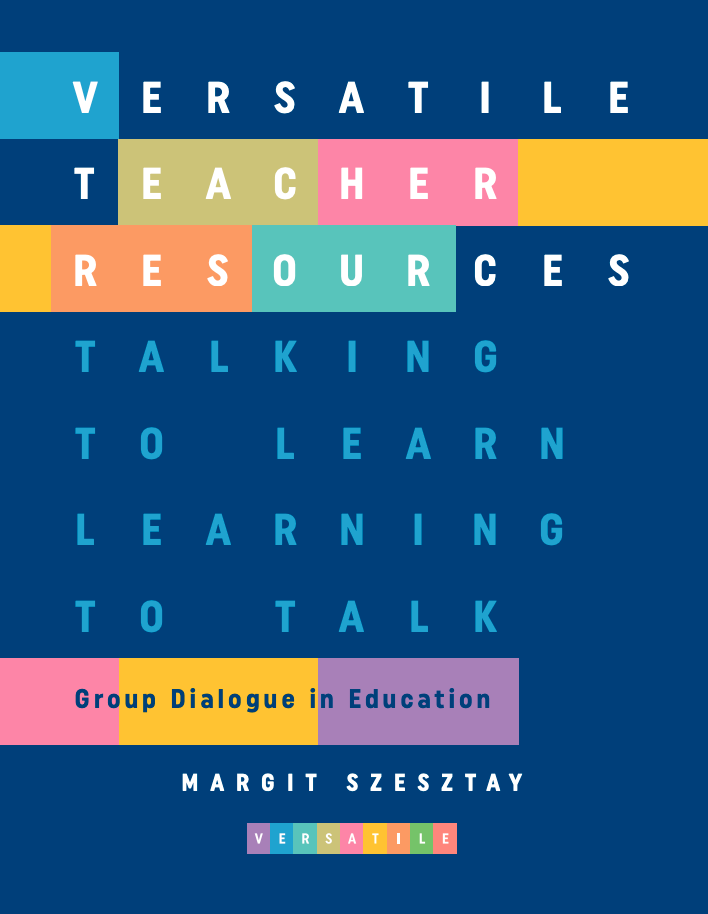Talking to learn
Learning to talk
Margit Szesztay
The book is all about
Asking fruitful questions
Listening with an open mind
Appreciating diverse perspectives
Tapping into the creative potential of groups
|
Talking to learn, learning to talk
is a book for teachers, trainers, educators and anyone else who is intent on becoming a better communicator. Being able to initiate, lead and engage in fruitful conversation is key to learning in and outside the classroom. The book is anchored in the belief that schools need to focus on communication skills across all subjects and for all age groups. The book walks you through finding answers to questions such as:
The question is not just 'face-to-face or online'? It is transmission mode or interactive mode? The principles and strategies outlined in the book will help you to teach interactively in real space as well as cyber space.
Some of Mark Fletcher's illustrations
|

The inspiration for the book was David Bohm’s notion of group dialogue:
In our modern culture men and women are able to interact with one another in many ways: they can sing, dance or play together with little difficulty but their ability to talk together about subjects that matter deeply to them seems invariably to lead to dispute, division and often to violence. David Bohm, 1996 Downloadable PDFs
Links to resources Recommended videos Edutopia.org/video/oracy-classroom-strategies-effective-talk.
|
This book is available from Lulu, which almost always offers discounts via codes which are shown on the spotlight page.
Higher education students and teachers at in-service courses engaged in different modes of interaction.
Part 1 takes the reader below the surface of group interaction, exploring the undercurrents of a debate, dialogue, or a discussion. By becoming aware of the invisible forces at play during a heated discussion, for example, we are better able to steer the conversation towards a positive outcome.
Part 2 provides a toolkit of awareness-raising activities for secondary and higher education to help learners become more successful communicators.
|

